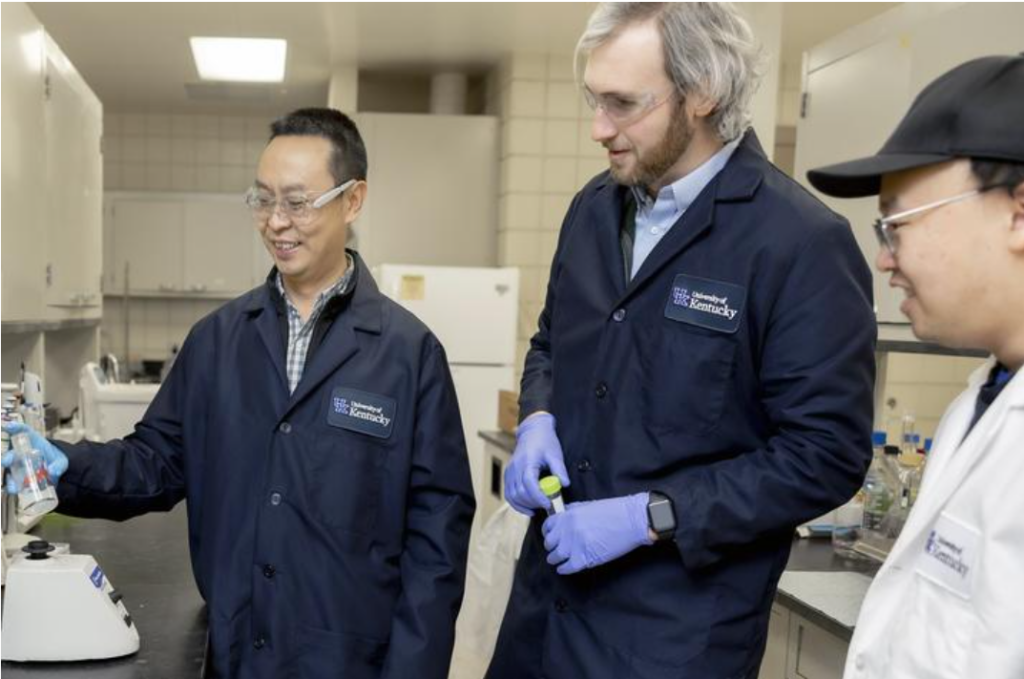Plastic pollution is a pressing environmental issue, and University of Kentucky Martin-Gatton College of Agriculture, Food and Environment researchers are leading the charge with an innovative solution.
The college’s Department of Biosystems and Agricultural Engineering (BAE) is partnering with the UK Department of Chemical and Materials Engineering to tackle the tiny, often unseen, particles of plastic now found in the world’s oceans.
What are NADES?
The research, published in Scientific Reports, centers on an intriguing solution: using Natural Deep Eutectic Solvents (NADES) to capture and remove these miniature particles from water.
“The challenge of micro- and nano-plastics in our environment has been gaining intense attention recently,” said BAE associate professor Jian Shi. “These minute particles, often invisible to the naked eye, are the remnants of larger plastic pieces broken down by sunlight and physical stress. Their size makes them notoriously difficult to remove using conventional methods like centrifugation or filtration, which are either inefficient or too costly.”
Plastic is a durable, cheap material, making it a staple in daily life. However, its strength is also its environmental downfall.
Plastics don’t break down easily, leading to massive piles of waste. Over time, these plastics break into smaller fragments. The smallest, nano-plastics, are so tiny they can’t be seen without a microscope. Their size makes them a significant hazard, as they can be ingested by marine life and enter the human food chain.

